- Home
- Mack Maloney
Strike Force Delta Page 7
Strike Force Delta Read online
Page 7
So much for the easy part.
They had to get down into the prison itself—and again, they really hoped the poison had done its job. Two Delta guys had stolen into the town the night before; they’d made the deal with the very willing bakers and seen the cakes poisoned right before their eyes. But did the mooks eat breakfast at the same time every day as Murphy had somehow determined? They were going to find out.
Murphy had also figured there were about 36 guards in the prison in all, both hard-core Al Qaeda members and local thugs. This was almost twice the number of American shock troops. And only 12 of the Americans would be going below. The rest would stay atop the roof and keep it secured while the rescue operation was ongoing.
But, if the poison had done its work, then there would only be about a dozen or so guys down below they had to kill. If the poison hadn’t worked, a small army would be waiting for them.
The so-called Inside Men prepared to make their way down into the prison, this as the troopers staying on the roof tossed all the dead mooks over the wall to the moat below. The Inside Men finished checking their equipment and declared themselves ready. But there was one more piece of the plan that had to happen first. They waited—but just a few seconds. Then they saw it coming: Ryder’s Harrier. Trailing smoke, wings a bit wobbly, rocketing just a hundred feet above the harbor. It was on time and moving incredibly fast.
The jump jet went over the roof a moment later. It barely cleared the top of the wrecked number-one helicopter; that’s how low it was flying. The noise was incredible, its shock wave like thunder. It shook the thick-walled prison and all the buildings all around it. This was the cue the shock troops were waiting for. The strike team headed down the stairs.
There was none of the hand-holding six-guysgrouped-together-going-as-slowly-as-possible thing here. There was just no time for that. Instead, the strike guys went down the stairwell at full speed, two abreast, the first two wearing almost total body armor and carrying powerful Mossberg shotguns. The next two were armed with M-60s, and they, too, were like sci-fi monsters, so thick was their armor. Behind them everyone else was carrying their standard M16 cut stock with extra-long magazines. This was not a silent entry. Crashing the copter on top of the fort had made that impossible. This was all about surprise and confusion and speed. Going against convention, the idea was to make as much noise as they could.
It took them 10 seconds to reach their first objective: the prison kitchen. The true tale would be told here.
They burst in to find 10 dead men, heads on the table, white foam bubbling out of their mouths. An eleventh body was on the floor, twisted into a grotesque position, white foam mixing with blood from its fractured skull. One of the troopers snapped a photo of this body—making sure they could ID it as Shaheen Faheeb. Then he spit on the corpse, and the other troopers let out a grim cheer. The poison had worked, on time and as advertised. Still, the troopers sprayed the room with gunfire, making sure the dead really were dead.
Outside, the jump jet screamed by again, rocking the old fort to its foundation a second time. The strike team formed up again and continued their descent.
They ran into the first real opposition on the third floor. Two fighters somehow revived from deep below were coming up the stairs as the shock troops were coming down. The Muslim fighters got the first shots off in the winding stairwell—their bullets bounced off the first two team members, one of them ricocheting back into the neck of one of the fighters. The second mook was cut in half by twin blasts from the Mossberg shotguns.
The strike team didn’t slow up a bit. They trampled the dying bodies and just kept on going.
They reached the second floor and here the team split into two. One squad broke off and headed for the prison’s engineering room; the others continued the descent. Team One came upon the engineering room just down the hall. It was little more than a broom closet, but inside the troopers found just what they were looking for: the controls for the prison’s crude fire-prevention system. Pipes of all shapes and sizes ran through the prison’s floors, ready to burst at the hint of a spark or smoke. Inside the engineering room were three big pumps and three big handles, the guts of the system. Everything smelled of salt and brine, and for good reason—the pipes were full of water, pumped in from the ocean nearby.
The jump jet roared by again, shaking everyone and everything a third time. The troopers began opening the valves.
Meanwhile, Two Squad had reached the first level and was still going down. Five terrorists were waiting at the bottom of a stairwell one floor up from the prison’s dungeon cells. Undecided and frightened, they had no desire to advance toward the commotion above but would shoot anyone who came down the stairwell.
That’s why a couple grenades came down first. They were short-fused blockbusters, and there was nowhere to turn for the mooks. The two bombs went off one-two and literally splattered the five terrorists all over the walls of the stairwell.
The shock troops came rumbling down just seconds later, again not stopping to inspect the goo, just charging on, the sound of rushing water in their ears, finally to the bottom level of the prison: the place where the jail cells were located.
Here the battle began for real.
The Harrier’s panel clock was not working, so Ryder brought an egg timer with him. It was counting backward, telling him the time he needed to be over the harbor, over the piers, then over the prison for the first time. That’s how split-second Murphy’s plan was. So far, it was going like clockwork.
Just a minute before, while the copters were sneaking in from the north and south, Ryder put the Harrier into a circle, just 20 miles off the coast of Loki Soto, over the horizon, out of sight on the crystal-clear day. Once the egg timer had counted down to 60 seconds, he booted throttles and headed in.
His head was still spinning from the events not two days before. Li’s hasty departure and the circumstances surrounding it still burned a hole in his stomach. But he had to push that painful aspect aside for now. File it temporarily somewhere, in the back in his brain, so he could concentrate on the task at hand. Still he was uneasy and in bad spirits. Curiously, it was like part of his body was missing.
He arrived over the tiny port town seconds after turning east, flying very low and creating such a racket, anyone below had no choice but to duck and cover. Ryder went over the prison an instant later, at full throttle, nearly hitting one of the helicopters and creating a tidal wave of earsplitting noise. The tiny port was instantly in chaos. Knowing the prison was filled with high explosives, the townspeople started fleeing for their lives. No one wanted to be around when the castle cooked off.
After his first pass, Ryder looped around and came back over, this just as the raiders were in the kitchen laying the coup de grâce on the poisoned terrorists they’d found. He went over twice as fast and even lower this time, creating even more confusion. Murphy didn’t want any civilians killed in the raid—that was very important. Ryder couldn’t guarantee, however, that there wouldn’t be more than a few broken eardrums by the time he was through.
He went out over the water and turned toward the prison a third time. Half the team members on the roof were loading terrorists’ weapons into the copters; the others were nervously watching the streets below. The town did have a well-armed street militia, more thugs in the employ of Al Qaeda. It would be unhelpful if they started turning up.
Ryder went over the town a third time. On this pass he managed to break just about every window in the neighborhood surrounding the prison, those he hadn’t broken already, that is. This was just about the time the raiders were turning the water valves to open and were rushing down to the bottom level where the cells were located.
This was when Ryder ran into his first bit of trouble. He streaked over the castle, then turned north, over what was really the heart of the town. Here he was surprised to discover a trail of tracer fire coming up at him. He quickly banked out of the way and found on the street below indeed a small
army was gathering. It was the town’s Al Qaeda–supplied militia. Murphy had predicted they would probably try to aid their comrades inside the fort.
Ryder continued his bank to the left, performing a very tight 180-degree turn. He did this so swiftly, the gunmen below couldn’t keep track of him. He lined up the nose of the Harrier on the street below and pushed the panel button to activate his gun pod. He was sure the noise alone would cause those below to scatter for their lives. He engaged his trigger—but nothing happened. The gun jammed.
He pulled up and out quickly, hoping this was just the fire-control computer and that he could override it. But he started punching buttons and looking for answers and came to the conclusion that it wasn’t the computer at all, but the old battered gun had malfunctioned, choking on all its own ammunition.
This was not good.
But he didn’t have time to think about it. The egg timer went off. He had to be someplace else. He flipped over and rocketed back toward the fort again.
Hanging beneath Ryder’s left wing was a GBU-10E/B Paveway Mk 82 laser-guided bomb. A weapon usually found on A-10 Thunderbolts in years past, it was a rarity these days. But while not the most modern of weapons, at five-hundred pounds it still packed a punch, which was important now. Again, the Mk 82 was laser guided, meaning it would home in on a laser beam being bounced off the target. The same two Ghost Team members who’d poisoned the sugar rolls were now in the building across the street from the prison, holding a laser designator.
Sticking to the same tight timetable as Ryder and everyone else, they began illuminating the northwest corner of the castle, a place Murphy had somehow determined was the weakest point on the fortress. When Ryder banked over the harbor and turned east once more, his weapon system computer immediately picked up the laser designation. It seemed to be burning a hole in the lower right-hand corner of the castle.
Ryder armed the weapon; then, with the corner of the prison still dead in his sights, he let the smart bomb go. . . .
Captain Johnny Jackson knew by now that these were not the Boy Scouts making all the ruckus above. He was still awake, still chained to the wall of his cell, but just by fate he could look out the tiny slit in his cell door to see the small war going on just outside in the hall.
The lead was flying, tracers bouncing all over, balls of flames blowing by the door. The noise was horrendous. At first, in those few sleepy moments after waking up, he thought this was an earthquake, that the fort was coming down on top of him, and that this tiny cell indeed was where he would die, not at the hands of his captors but in spite of them.
Then the water came. In drips and drabs at first, from the pipes in the ceiling to the top of his head. But then the drops became a trickle, the trickle a small waterfall. In seconds it was a torrent. Salt water, pouring out of the ceiling. . . .
My God, Jackson thought. I’m going to drown. . ..
Never would he have guessed that drowning would be how he would leave this hellish place. Fire, yes; beaten to death, maybe—without his head, most likely. But underwater? God must be having a laugh somewhere, Jackson thought.
But then came the noise of more explosions and more of the unmistakable racket of gunfire. It was so close now, he could smell the gunpowder. Someone was trading shots with the guards right outside Jackson’s cell door.
It went on for what seemed like forever. There was no way he could tell who was winning or even who was fighting against whom. Finally there was one last huge explosion—and then everything was still, except for the gushing water.
Then the cell door opened, and in the next second two soldiers stumbled in. Jackson had no idea who they were. All he knew was that the water was coming down on them as well. . .
Then Jackson saw the patch on their shoulders. A symbol of the Twin Towers and the stars and stripes and the initials NYPD and FDNY, and the motto “We Will Never Forget.”
That’s when it hit him. These were not fellow Delta soldiers. These were the infamous Ghosts—the mysterious special ops unit that had saved the world at Hormuz, and then at Singapore, and again in stopping terrorists recently from shooting down scores of airliners in the U.S.
Now they were here to save him.
The two soldiers saw him, saluted, then released him from his chains by firing directly at the locks.
Jackson collapsed immediately. He couldn’t speak, couldn’t stand. One of the soldiers injected him with something. Jackson felt like he was suddenly lifted off the ground. Morphine . . . he could feel it coursing through his veins. In an instant, he felt on top of the world.
The soldiers then picked him up and carried him out into the hall. The water was nearly two feet deep out here, and in it Jackson could see the bodies of his torturers, some shot and bloody, some clearly drowned. What had been a waterfall in his cell had turned into a tsunami out here. Surprised by both the deluge and the assault troops, the mooks had paid the price.
His rescuers carried him down the hall, sloshing through the still-rising water, kicking bodies aside. Many had been shot in the head; others had been skewered by bayonets, as well as drowned. Releasing the water had served two purposes: It had dampened the tons of explosives inside the prison and, by sheer surprise, had killed as many of the terrorists as the strike team had with their weapons. Even in his battered condition, Jackson had to admire the ingenuity of it all.
Just before they reached the end of the flooded hallway, the two soldiers stopped, pressed him against the wall, and covered his body with their own. A second after that, the northwest corner of the prison was blown to pieces.
Next thing he knew, Jackson was looking out onto the street that bordered the prison. Townspeople were running by, fleeing from the commotion around them. A rush of water was following them down the street, emptying into the harbor beyond.
In front of him was a helicopter—big, fat, and bristling with weapons. Sitting in this copter surrounded by more soldiers in outrageous combat suits were Jackson’s men, the rest of Thunder. All of them were wounded and bloody, but they were still alive and breathing. They’d been carried out by the mystery soldiers, too.
That’s when Johnson’s rescuers picked him up again and carried him to the helicopter. More gunfire could be heard. A jet fighter roared overhead. The castle seemed to be on the verge of collapse.
Above the chaos, one soldier yelled to Jackson: “Time to go home. . . .”
Chapter 5
The casino was built in the shape of a Bedouin tent. It was a grand, futuristic facade, polished white, with red flags billowing from its top. It had two main floors. The first level, expansive and square, held a huge overly ornate casino, baccarat and roulette being the featured games. Women in short tunics, plunging necklines, and high heels flitted through the crowd dispensing Egyptian beer and cheap Russian vodka. Many other women were drifting through the casino as well. Young, well-dressed, and Eastern European mostly, they were prostitutes, plying their wares.
There were many private rooms located around the periphery of the casino floor. Originally built for private games of chance, this was where the more connected clientele went to consume drugs in private. Amphetamines and barbiturates, occasionally cocaine, and sometimes even pure opium would make an appearance here.
Women, gambling, liquor, and drugs. . . this was not the French Riviera. The casino was in Bahrain, a deeply Muslim country that nevertheless offered the sins of Gomorrah to the right people for the right price. The “right people” meant the members of the Saudi Royal Family, whose homeland was just a short plane ride across the Gulf.
The casino was located in an isolated part of the island nation. There was a private airstrip here, and that’s how most of the Saudi princes arrived at this place. The runway had been built long enough to accommodate not only private planes but also fighter jets, such as the American-built F-15, a model flown extensively by the Royal Saudi Air Force. Why would jet fighters ever land here? Because the royal princes who flew over here from Saudi Ara
bia many times requested armed fighter escorts for their short hop across the water. A matter of prestige more than security, many times these supersonic escorts would be told to wait—either in the air or with their engines running parked on the taxiway—until the escorted Prince was ready to go back home. On busy nights, toward the end of the week, there might be up to two dozen F-15s either flying around above Bahrain, making for a very crowded sky, or jammed up on the tarmac below.
Tonight was a busy night.
The man named Al-Jabazz Saud Ben-Wabi, aka the Diamond Prince, landed at the airstrip just after nine in the evening. His new Gulfstream jet set down just ahead of its two-ship Royal Saudi F-15 escort. The DP was known to get so drunk at the casino, it would take him hours to get his feet back under him. Like a limo driver on call for a drugged-out rock star, the F-15 pilots would have to wait it out until the megarich Prince decided it was time to leave. Either airborne or parked, they were in for a long night.
The DP had 3 bodyguards with him—reduced from the usual 12 or more he carried when he was abroad. He was wearing so many diamonds—on his fingers, in his ears, around his neck—that one guard was on hand simply to protect the jewelry. They didn’t call Ben-Wabi the Diamond Prince for nothing. Two somewhat distant cousins were also with him. Middle-aged identical twins, both were named Gebeeb. Bringing the cousins to the casino was a request from their mother, a less well off aunt of the DP. Though he had made a vague promise to them to hook up later on, he was planning to rid himself of them as soon as he reached the casino.
He would leave them on the first floor of the club—this was where the less beautiful of the Beautiful People spent their evenings. Only the top of the pops got up to the secretive second level. This floor was, of course, where the DP would always go. He would never think of trafficking with the unwashed people below.

 Strike Force Bravo s-2
Strike Force Bravo s-2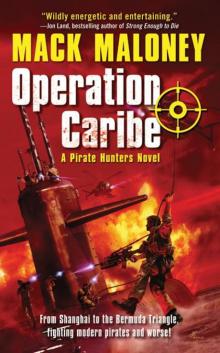 Operation Caribe ph-2
Operation Caribe ph-2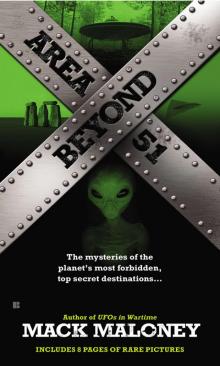 Beyond Area 51
Beyond Area 51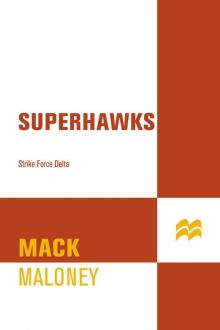 Strike Force Delta
Strike Force Delta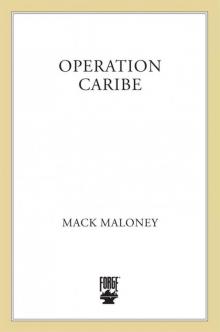 B00447820A EBOK
B00447820A EBOK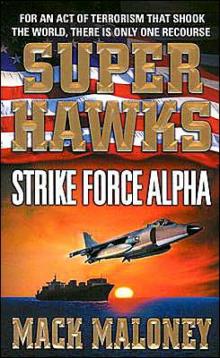 Strike Force Alpha
Strike Force Alpha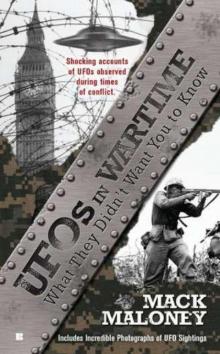 UFOs in Wartime: What They Didn't Want You To Know
UFOs in Wartime: What They Didn't Want You To Know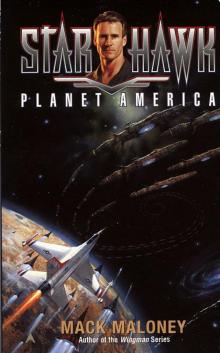 Planet America s-2
Planet America s-2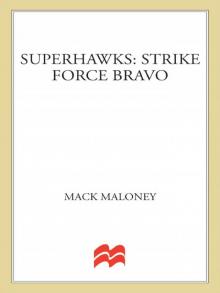 Strike Force Bravo
Strike Force Bravo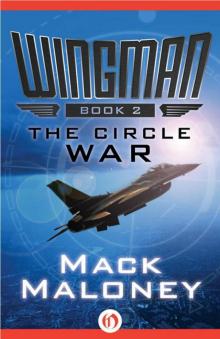 The Circle War w-2
The Circle War w-2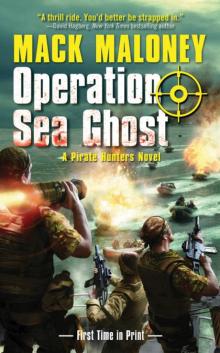 Operation Sea Ghost ph-3
Operation Sea Ghost ph-3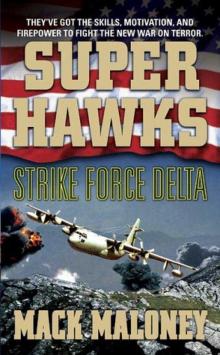 Strike Force Delta s-4
Strike Force Delta s-4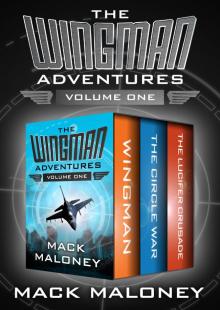 The Wingman Adventures Volume One
The Wingman Adventures Volume One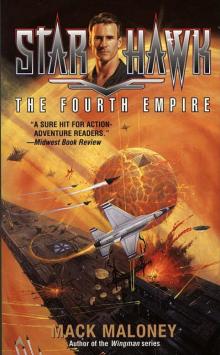 The Fourth Empire s-3
The Fourth Empire s-3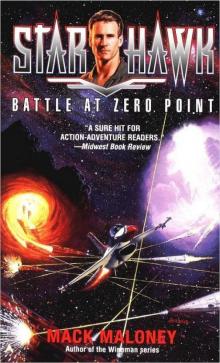 Battle at Zero Point s-4
Battle at Zero Point s-4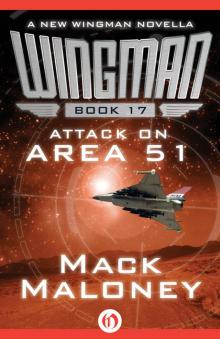 Attack on Area 51
Attack on Area 51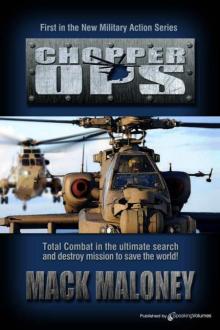 Chopper Ops
Chopper Ops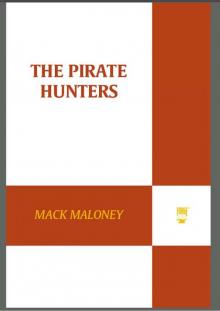 B003IKHEWG EBOK
B003IKHEWG EBOK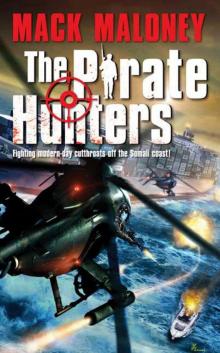 The Pirate Hunters ph-1
The Pirate Hunters ph-1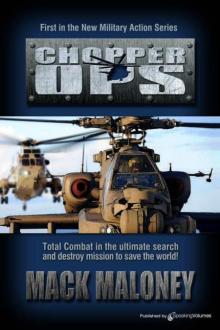 Chopper Ops co-1
Chopper Ops co-1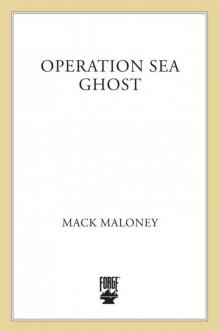 B005J4EW5G EBOK
B005J4EW5G EBOK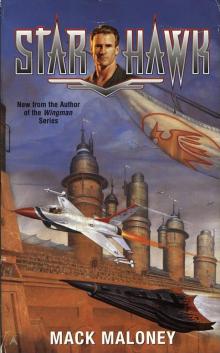 Starhawk s-1
Starhawk s-1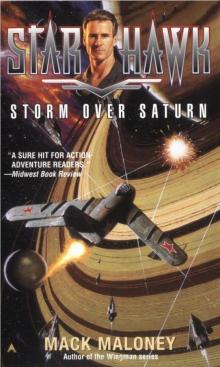 Storm Over Saturn s-5
Storm Over Saturn s-5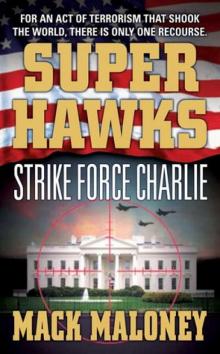 Strike Force Charlie s-3
Strike Force Charlie s-3